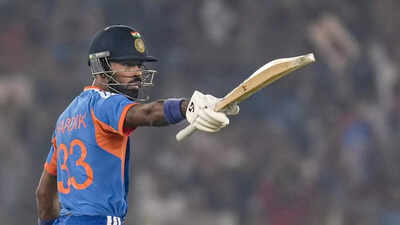Heart attacks and cardiac arrests are no longer health concerns limited to older adults. In recent years, an alarming trend has emerged where young and seemingly healthy people are suddenly collapsing due to heart attacks, sometimes without any warning signs. What’s even more concerning is that many don’t realise they’re at risk until it’s too late. This growing health scare shows why it’s important to spot silent symptoms early and act on time.
Hence, recently, Dr Shriram Nene, a well-known heart surgeon and Madhuri Dixit’s husband, who regularly shares health tips and awareness posts on his Instagram profile, appeared on an episode of The Ranveer Show, a podcast hosted by influencer Ranveer Allahbadia, where he explained the causes behind sudden heart attacks.
What really happens during a heart attack?
Dr Nene explained that heart attacks are caused when blood flow is suddenly blocked to a part of the heart muscle, usually due to a blockage in one of the three major coronary arteries or in some cases, the critical left main artery.
“When this happens, that part of the heart stops getting oxygen-rich blood, and the muscle in that area begins to die,” he said.
“That’s when you feel chest pain that may radiate to your arm, along with shortness of breath, sweating, and palpitations,” he further said. But here’s the worrying part—not everyone experiences these textbook symptoms.
No symptoms? It could still be a heart attack
Dr Nene pointed out that 20 per cent of heart attack patients don’t show any typical symptoms. “They may feel slightly unwell, faint, or in some cases, just collapse without warning,” he said.
This happens because if the heart stops pumping efficiently or develops an irregular and dangerously fast rhythm, blood stops flowing to the brain. The result? Sudden unconsciousness, cardiac arrest, or even death, all without any prior warning.
Why are young people at risk?
Experts agree that a combination of stress, sedentary habits, smoking, poor diet, and untreated conditions like diabetes or high blood pressure is making younger individuals more vulnerable.
In fact, recent health reports in India have shown a sharp rise in heart-related deaths among people under 45, especially post-pandemic, with many cases being sudden and without prior diagnosis.
What you can do to protect yourself
Dr Nene’s message was clear: Understanding the causes is the first step to preventing heart attacks. Regular health checkups, heart screenings, and being aware of family history can go a long way. So can making small but consistent changes in lifestyle—like eating well, exercising regularly, managing stress, and avoiding tobacco.
And most importantly, don’t ignore signs like unexplained fatigue, discomfort in the chest or jaw, or shortness of breath, especially if you have risk factors.
As heart attacks become more common and silent awareness is the only way that can make all the difference between life and death.






